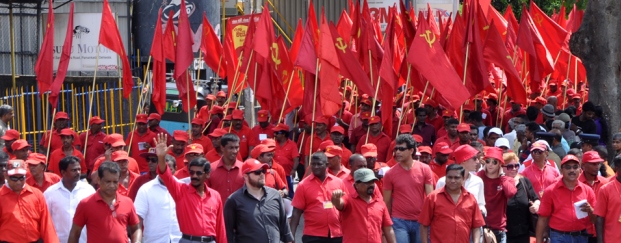Opposing the Hybrid Court System proposed by the UNHRC, the Janatha Vimukthi Peramuna (JVP) yesterday stressed that justice for alleged war crime victims would be ensured only through a credible Domestic Inquiry into alleged war crimes.
Addressing the media at the JVP office yesterday, Parliamentarian Vijitha Herath said there are no provisions within the constitution and the legal framework of the country for the interference of foreign judges in the internal matters of the country.
He said the absence of a proper mechanism to implement the LLRC recommendations during the Rajapaksa regime has resulted in the UNHRC intervention on this issue.
“Soon after the war ended in 2009, the JVP proposed the then government to set up a proper domestic mechanism to develop war affected areas and rehabilitate and resettle affected families with the assistance of all political parties. We also proposed to the government to get the volunteer participation of all nations to do that.
But the Rajapaksa government didn’t listen to us and made a Joint Statement with the UN during the visit of the UN Secretary General promising to take certain measures to investigate war crimes, etc. But they failed to achieve this,” he said.
Herath also added that the Rajapaksa government undermined the independence of the judiciary and this also resulted in foreign intervention.
He urged the present government to protect judicial independence and avoid political interference in the work of the judiciary.
“It was reported that the government of Sri Lanka and the United States is planning to make a joint proposal at the UNHRC on September 24.
We will reject that report too if there is anything mentioned in that report indicating interference by international judges,” he said.
Ishara Mudugamuwa
CDN
